Art Represent presents the first solo exhibition by artist Maria Kulikosvka
London UK: Art Represent will present the first solo show of Maria Kulikovska titled "9th of May" which will run from 9 May until 1 June 2016.
Having established herself as one the most exciting emerging talents in recent years, this will be the Ukranian artist’s first solo show.
Inspired by the recent events in Ukraine, the works that will feature in the exhibition are embedded within a wider discourse of violent conflict and its implications on public life and the private self. Using art as her weapon, Kulikovska underlines the mental and physical toll that violent conflict can take on women in particular, so often the victims of sexual abuse and invisible contributors of the wartime economy.
This exhibition will open in two parts. Part I, Flowers of Democracy (FoD) on 1 May, will be a continuation of Kulikovska’s most prolific art action. FoD was originally launched in the summer of 2015 in Ukraine as a way of highlighting the plight of women in the ongoing conflict in the region. The Flowers of Democracy 2016 aims to take the concept beyond borders and spark a wider dialogue around gender equality and feminism by looking at the relationship between the private body and a wider political context. Maria along with other like-minded volunteers will be placing plaster casts of vaginas around various locations in London that has traditionally failed to give women equal status and representation.
The vagina or pussy, both the physical organ and the very words themselves suffer from censorship and condemnation. They are so often taboos even in the most liberal of societal contexts. Within the sphere of contemporary art, the portrayal of vaginas (especially by women) is seen as contentious and on occasion even criminal. The FoD aims question our ideas of gender roles and to encourage a more intimate and unashamed interaction with the vagina itself. To openly look at the private self of a woman’s body that continues to be discussed, controlled, and abused by external political circumstances; abortion rights, rights to contraception, to choose against Female Genital Mutilation, sex trafficking, being second class citizens for simply being or identifying with being a woman.
Part II of the exhibition is titled ‘9th of May’, in references Victory Day, a holiday marking the surrender of Nazi Germany to the Soviet Union. In 2015, the Ukrainian government approved a package of laws on “decommunisation” in an effort to re-write an official version of Ukrainian 20th century history that’s separated from Russia. The laws ban Nazi and Communist symbols; and they replaced the Soviet term “Great Patriotic War” with the European Second World War. But for Maria, the idea of celebrating victory over fascism is a facade and a propaganda tool to inflate a sense of nationalism in order to cover up the current authoritarian dictatorship over Crimea and the corruption scandal in Ukraine.
The 9th of May exhibition will feature a series of sculptures, ceramics and sketches to show the fragile relationship between the human body and the external context of war. For this exhibition, Kulikovska has recreated sculpture pieces from previous bodies of work, which the artist regards a poetic extension of her own corporeal body. Sculptures from Homo Bulla, 254, and Flowers of Democracy, which were originally created and destroyed by the war, will now be re-birthed and reclaimed as a message of hope and action.
The artist sees this two-part project as a celebration of the power of art. “Marcel Duchamp once claimed, “I don’t believe in art, I believe in artists.” But I believe in art more than artists.” – Maria Kulikovska. “Marcel Duchamp once claimed, “I don’t believe in art, I believe in artists.” But I believe in art more than artists.” – Maria Kulikovska
About the Artist
Born in 1988 in Kerch, Ukraine, Maria Kulikovska received an MA in Architecture and Fine Art from the National Academy of Art and Architecture in Kiev. She has won several prestigious prizes including the Cultural Capital in Umeå, Sweden (2014), winning the Ruta Runa Project for young artists from Ukraine and Sweden (2013), and the Pinchuk Art Centre Prize 2013 nominee.
Maria founded ‘Body and Borders’, an international feminist organisation where she works with her wife and partner Jaqueline Shabo. The organisation aims to support and promote female artists. The nucleus of Maria Kulikovska’s work is her own body, its perpetuation, its transformation and its decay. In her artistic practice, the idea of her body is transformed into architectural structures made from natural materials, such as salt, milk or sugar, in order to deal with ideas of production, construction and deconstruction.
About Art Represent
Art Represent was founded with the mission to sell and showcase works by the most exciting artistic voices from regions affected by conflict and social upheaval.
We believe that by providing a platform for artists who belong to communities living in conflict, we can give representation to unheard voices and put a spotlight on the creative talent of individual artists who should be recognised by a global audience. We hope that through art, we can open up the dialogue to challenge the prevailing narrative of conflict regions that has been shaped by popular media.
Art Represent acts as a springboard for our artists and provide them with the holistic support they need to build a successful career. We want to become a sustainable source of income for the artists by selling their works. We are also invested in giving all of our artists the opportunity to showcase their works through our curatorial programme.
About Homo Bulla & 254
The Homo Bulla sculptures emphasise the fragility of mortality, being life-size models of the artist herself and made completely of soap. The history of the Homo Bulla is also a powerful evidence of the impact of conflict on art. The Homo Bulla sculptures were originally exhibited at IZOLYATSIA, a platform for cultural initiatives in Donetsk, which was seized when Russian-backed rebels converted the venue into a military base. During this time, Kulikovska’s artistic practice was labelled as degenerate and her works were used for shooting practice. In order to regain control of her body of work, Kuikovska for Saatchi’s UK/RAINE exhibition (2015), destroyed one of the Homo Bulla sculptures during her ‘Happy Birthday’ performance on the opening night. The performance offered the artist a cathartic means of regaining agency, as the only person with the right to bring harm to herself.
Statue 254 is based on Kulikovska’s protest against the Manifesta Biennale in the Hermitage, St Petersburg. Upon refusing to participate in the Biennale, Kulikosvka lay under the Ukraine flag, on the marble steps of the main hall in Hermitage until police came to take her away. 254 is the number that Maria received as refugee from Crimea in Ukraine, refugee in her own country.
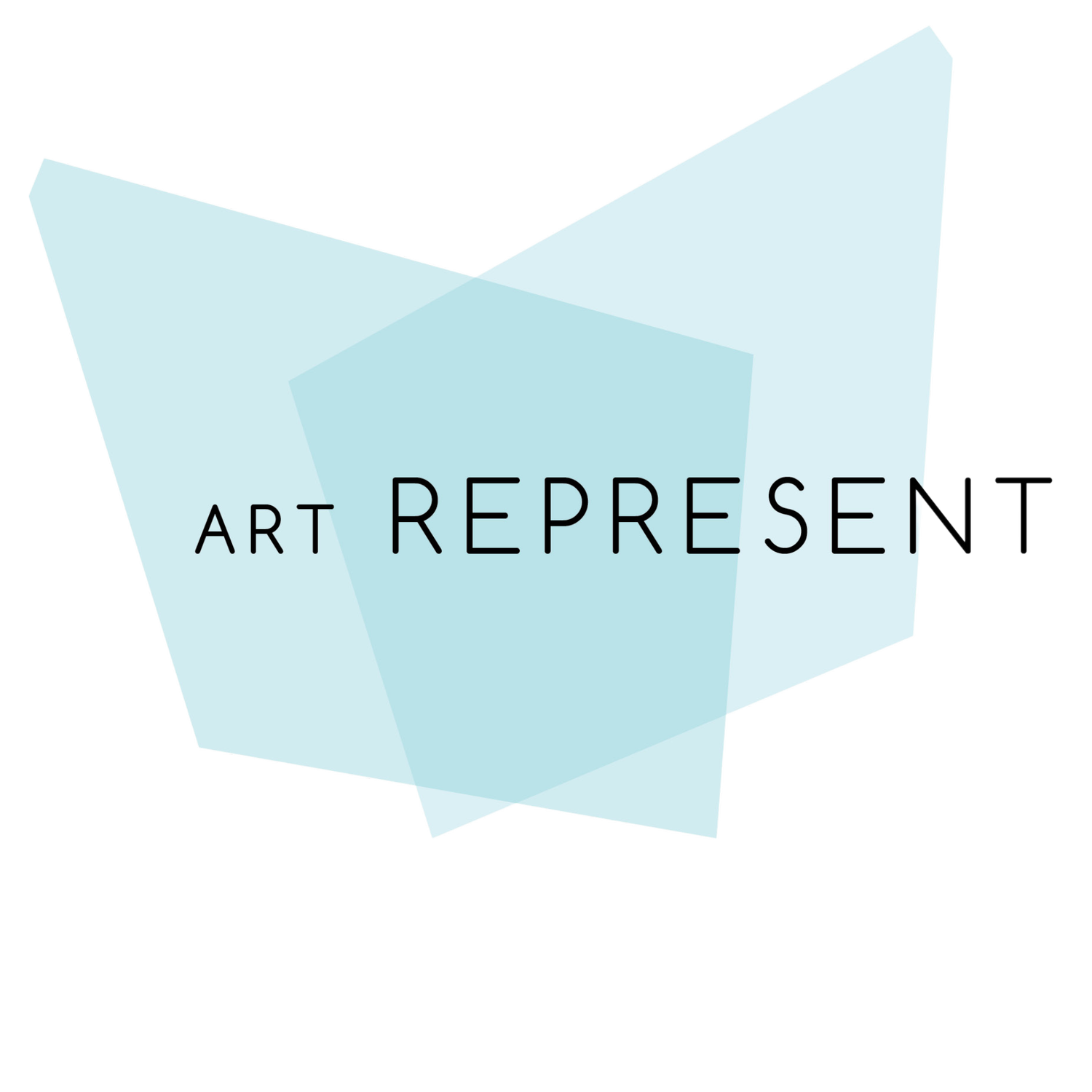

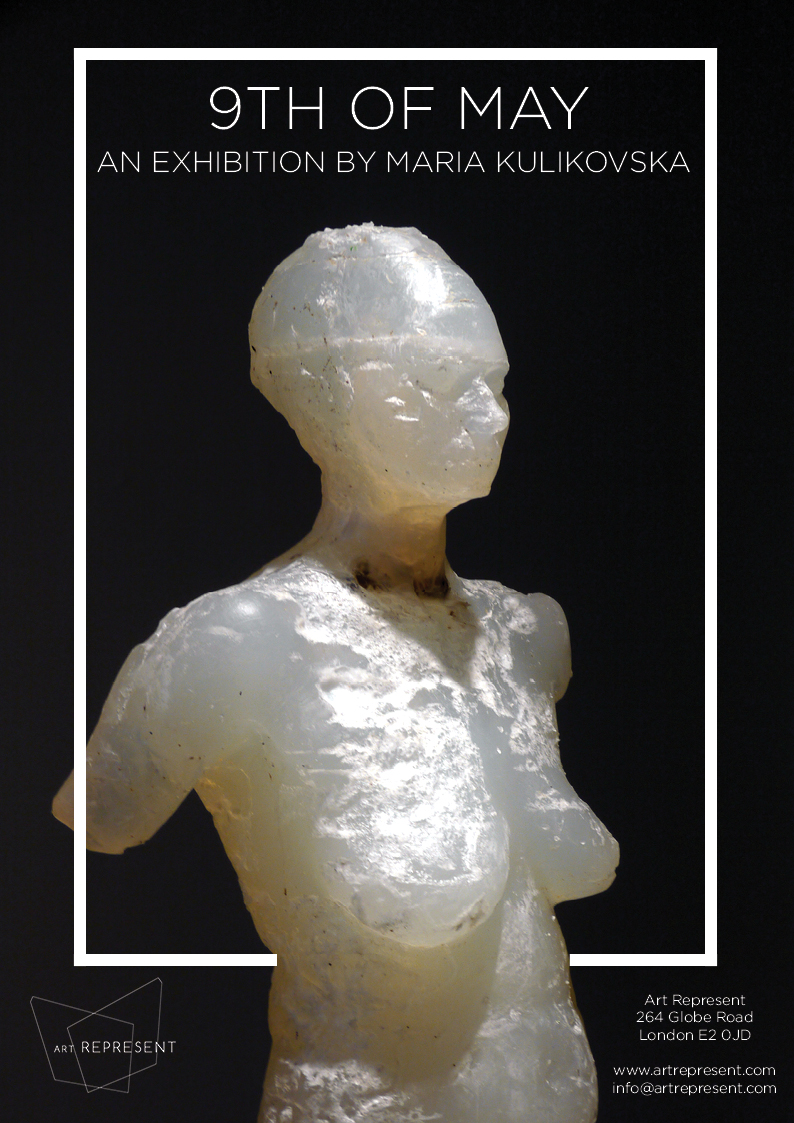
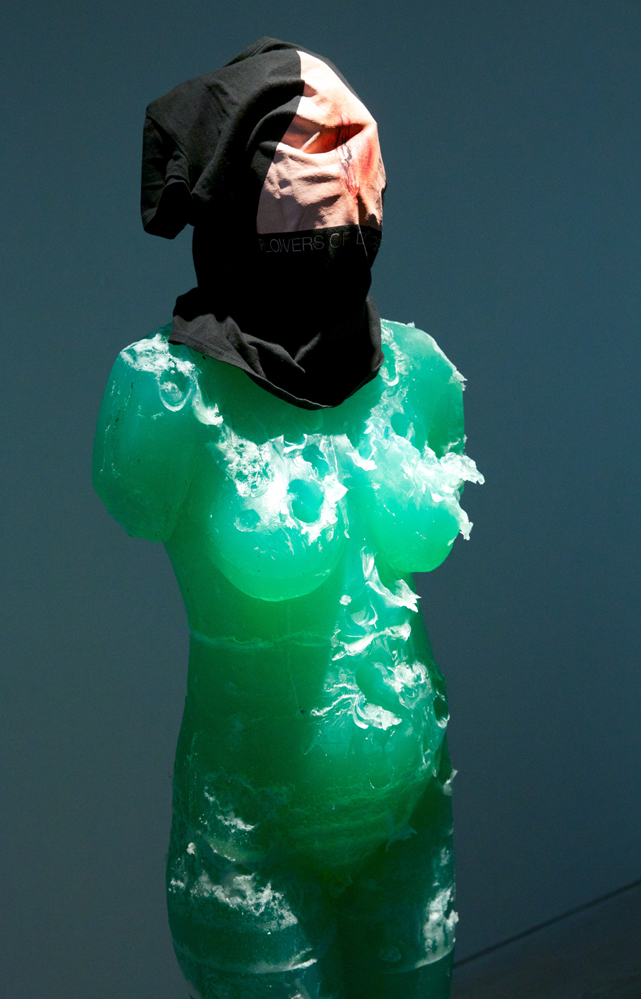
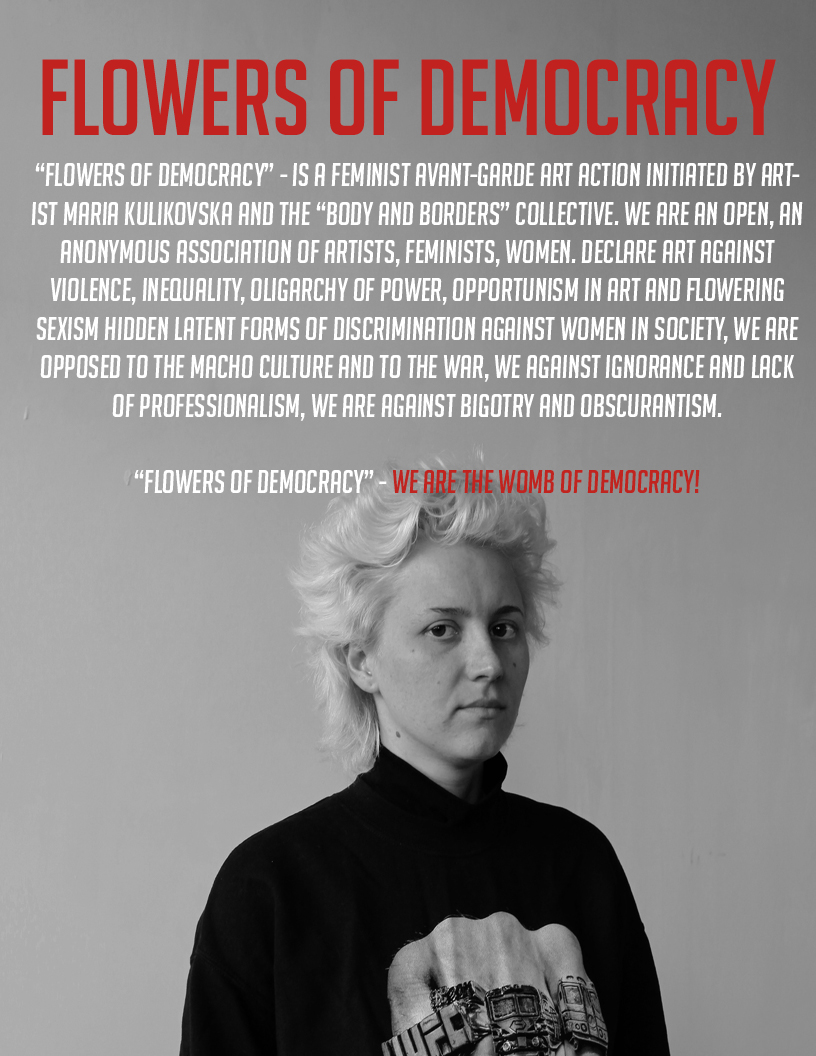
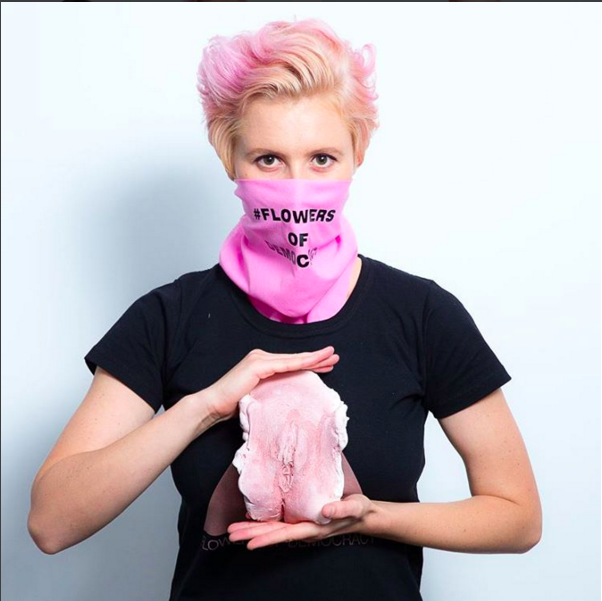
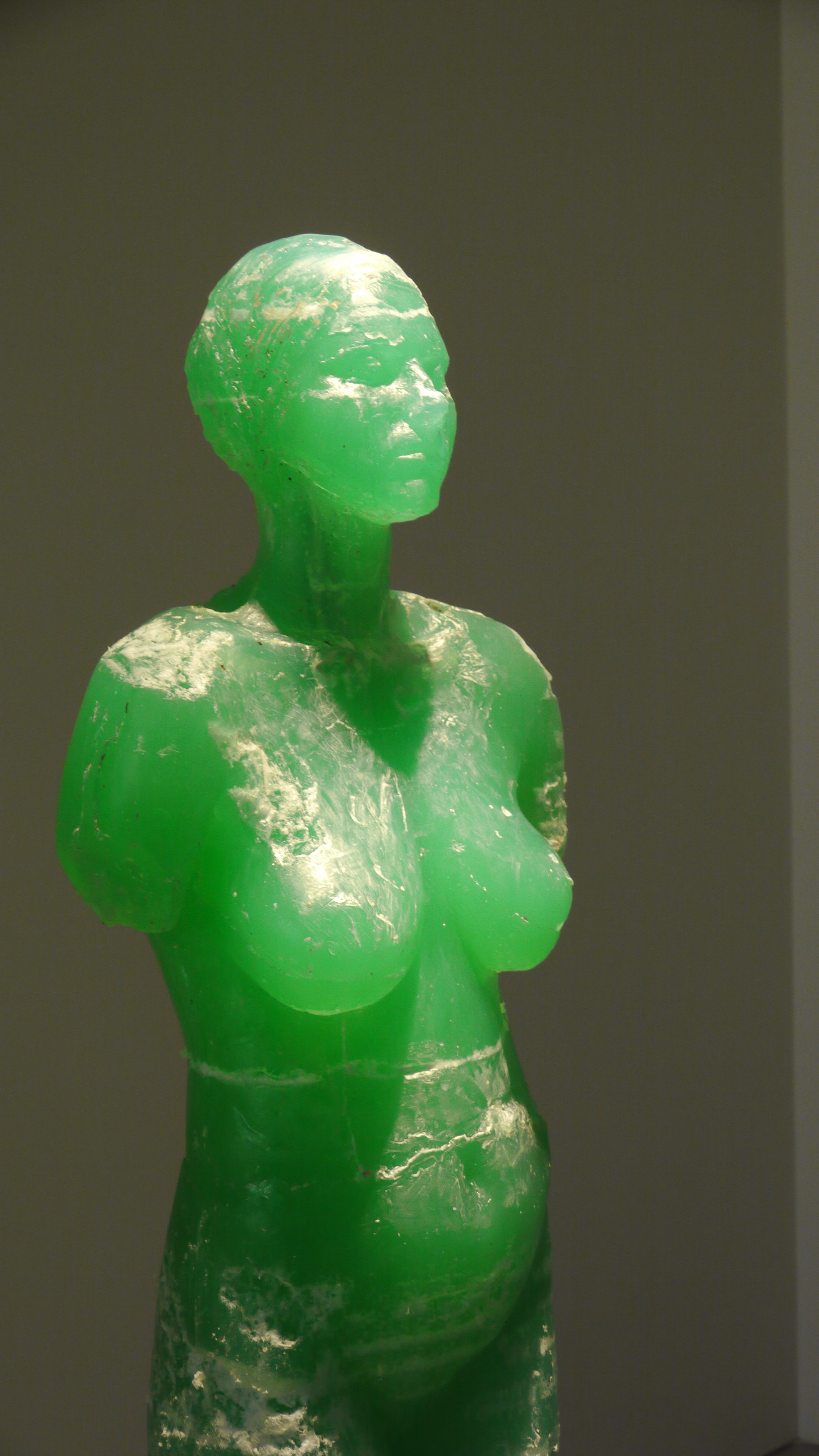
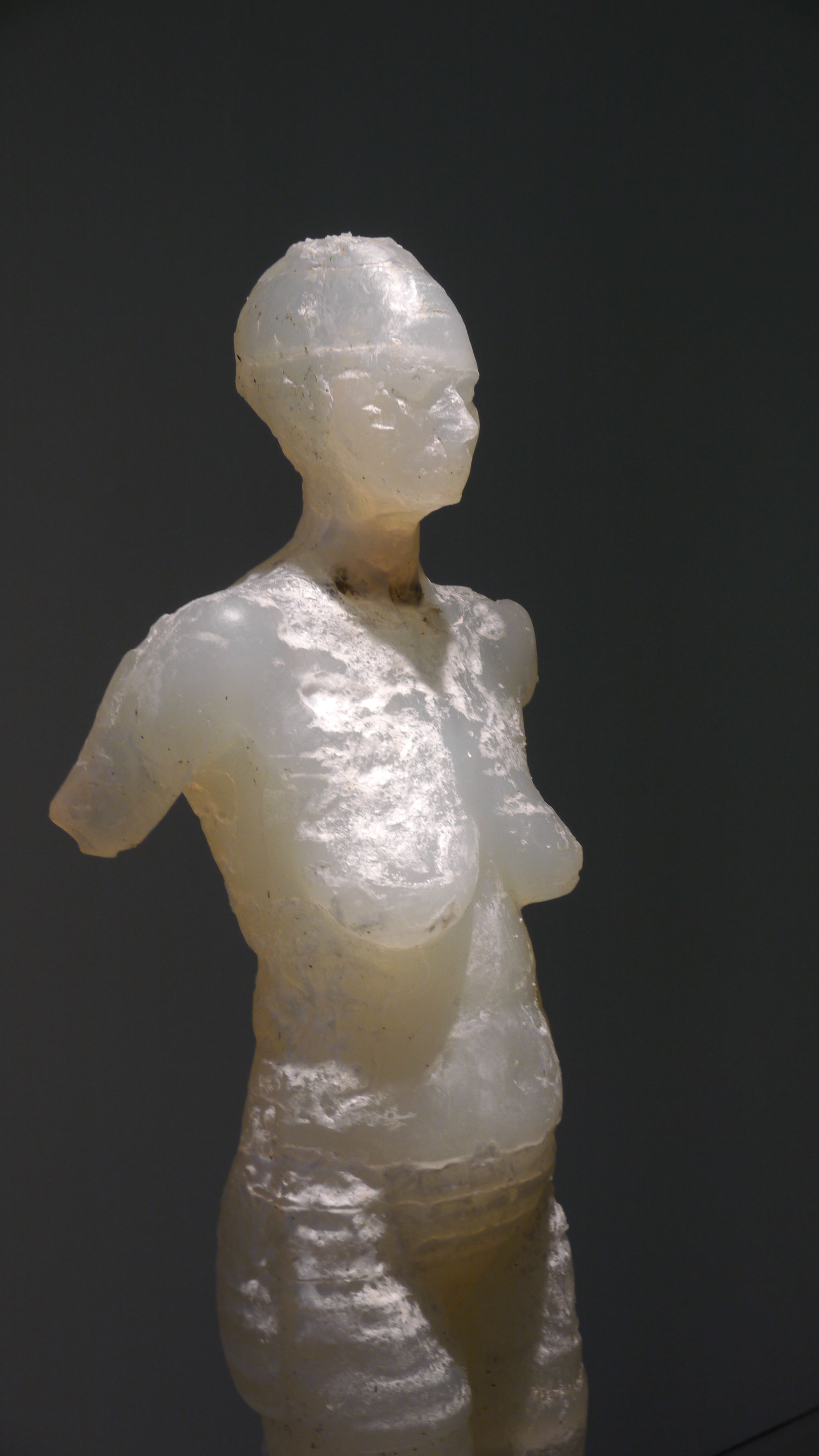

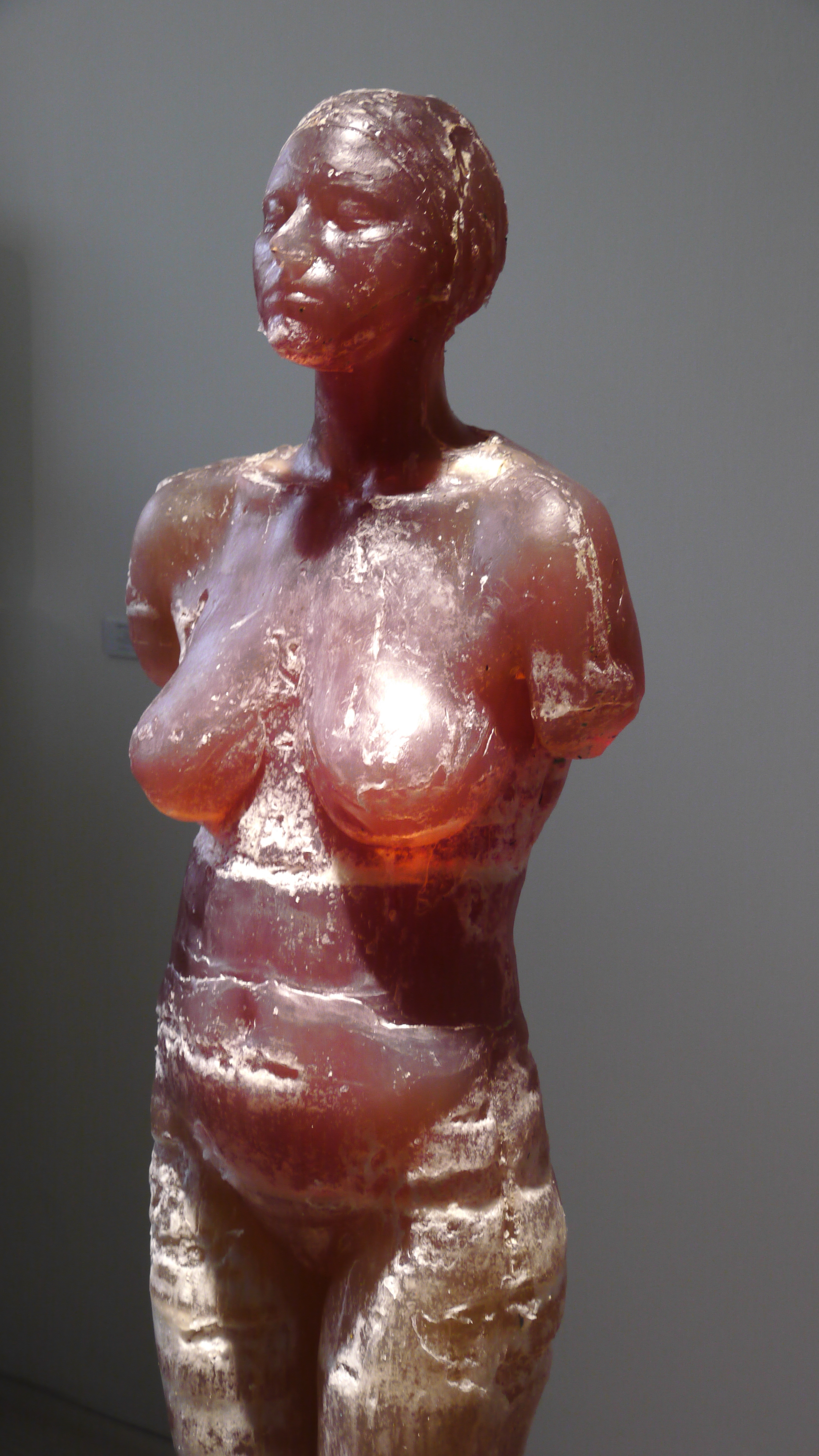








MARIA KULIKOVSKA
WATERCOLOUR ON PAPER
21.0CM X 29.7CM
2014